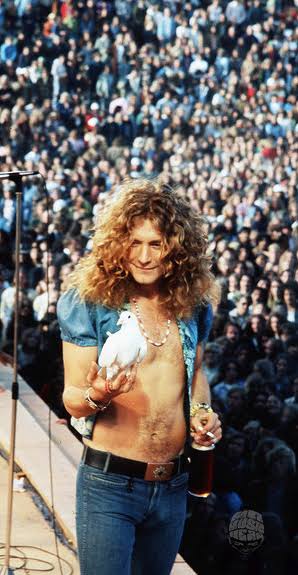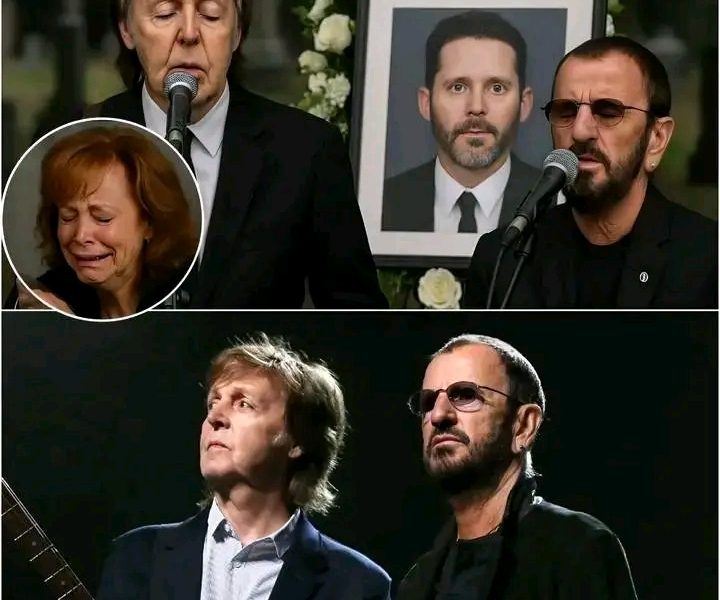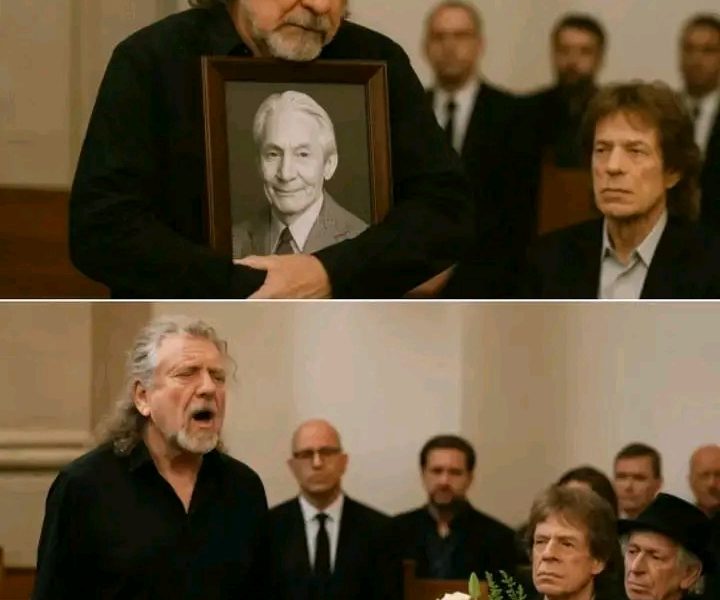.
—
The room in London smelled of cigarettes, sweat, and ambition. A battered Marshall amp sat quietly in the corner, its speaker cloth fraying like the nerves of every band who’d walked through these walls trying to make it. The floorboards creaked with the ghosts of unplayed riffs. Jimmy Page, sharp-eyed and restless, flicked ash from the end of his cigarette and glanced at the clock.
Still no singer.
He’d tried the lot—Steve Marriott, Terry Reid, even considered Steve Winwood for a strange moment. All had passed. “Too busy,” “Already signed,” “Not interested.” Page was desperate. He had the riffs, the vision. What he didn’t have was *the voice*.
Then Terry Reid mentioned some lad from the Midlands. “Bit wild. Long hair, sings like a banshee. Robert Plant.”
Page rolled the name over in his mind like a riff waiting for the right chord.
A week later, they met in a pub near Birmingham. Plant, all of 19, with a lion’s mane of curls and a voice that sounded like ancient thunder rolled through honey and steel. He didn’t talk about being a rock star. He talked about *Algerian folk scales*, *Hobbit poetry*, *Howlin’ Wolf*, and *Odin*.
Jimmy listened. And for the first time in weeks, he smiled.
—
**London, 1968 — The First Rehearsal**
Plant arrived with bare feet and a bottle of mead, claiming it helped the “Nordic tones.” John Paul Jones was skeptical. John Bonham, Plant’s mate from the Midlands, looked like he was born with drumsticks in hand and hell in his eyes.
They started with “Train Kept A-Rollin’,” something simple, just to feel it out.
What happened next would become legend.
Jimmy’s guitar cut through like lightning through oil. Bonham hammered with the wrath of Norse gods. Jones held it down with the quiet confidence of a man who knew he was essential. Then Plant opened his mouth and let out a note so raw, so primal, that time seemed to slow.
The amps didn’t hum—they *howled*.
—
**Misty Mountains and Magic**
As Led Zeppelin rose like a firestorm across the Atlantic, Robert Plant became something else. Not just a singer, not just a frontman. He was a *seer*, channeling something old, something eternal. His lyrics weren’t just about girls or cars—they were epics. *The Battle of Evermore*, *Kashmir*, *No Quarter*—songs that painted vast mythscapes in the minds of anyone listening through their vinyl portals.
But it wasn’t always glamorous.
One night in 1973, alone in a hotel in Tokyo, Plant sat cross-legged, thumbing through a battered copy of the *Poetic Edda*. Rain slicked the window like tears. The band had played three nights in a row, and each show left him more drained, more hollow. The crowd’s screams were like oceans, and he was drowning.
“You alright?” Jimmy asked, stepping in with a glass of sake.
Plant looked up. “Do you ever feel like we’re conduits, not creators?”
Jimmy tilted his head.
“We don’t write the music. It writes us.”
Jimmy grinned. “That’s the mead talking.”
But Plant knew. Deep down, he knew.
—
**The Accident and the Island**
In 1975, after a car crash in Rhodes left him with shattered bones and time to reflect, Robert Plant found himself on a Greek island, staring at the sea and wondering if it was time to let go. Fame was a gilded cage. He missed his children. He missed being anonymous.
But more than anything, he missed singing not for millions, but for *meaning*.
One night, limping on a cane, he walked up to a hill where an old man played a lyra by moonlight. Plant sat, silent, until the man motioned him over.
“You play?”
Plant smiled. “I used to.”
The old man handed him the lyra. “Then you still do.”
Under the stars, Plant found his voice again—not as a rock god, but as a man searching for the divine in every note.
—
**Bonham’s Last Beat**
1980. The day Bonham died, the music stopped.
The press called it a tragedy. Plant called it the end of the world.
Led Zeppelin disbanded.
For days, Plant didn’t sing. He wandered his garden in Worcestershire, barefoot in the dew, waiting for the thunder that never came. Some fans sent letters. Some sent flowers. One sent a rune, with the word *”Hjarta”*—Old Norse for *”heart.”*
He wore it around his neck ever since.
—
**Post-Zeppelin Dreams**
In the years that followed, Plant transformed again. Like a shaman shedding skins, he delved into solo work, world music, North African rhythms, Nashville ballads. His voice, less shrill now, deeper with age, became a storytelling instrument.
He sang with Alison Krauss. He walked Moroccan alleys chasing the ghosts of Gnawa music. He stood on stage in Texas and whispered verses older than electricity.
And always, somewhere between each breath, he heard Bonham’s drums echo. Felt Jimmy’s chords flicker in memory. Smelled the sweet smoke of that first rehearsal room in 1968.
—
**The Raven’s Return**
In 2022, in a quiet village near Snowdonia, Plant recorded a song no one had heard. A single take. A ballad to the wind. It was never released commercially. Just a limited vinyl run, 300 copies, sent only to friends and strangers chosen at random.
The lyrics? About a raven who forgets it was once a man. Until a storm brings back the sound of drums.
One critic who received it described it as “a love letter to mortality, myth, and memory.”
Plant never commented.
—
**The Final Tour**
Now in his late seventies, Plant walks with a slower gait, but the fire still dances in his eyes. When asked in an interview what keeps him singing, he simply said:
“I haven’t finished the story.”
A tour was announced: “Songs for the Otherworld.” Not a Led Zeppelin reunion. Not a greatest hits. A mix of obscure tracks, lost epics, reimagined folk tales.
The final show was set for Reykjavík. The stage, a ring of stones under the northern lights.
As the aurora shimmered and thousands gathered, Plant walked out alone.
He sang “Kashmir” like a prayer, not a performance.
The stars blinked. The earth listened.
—
**Epilogue**
Some say he vanished after that night, walking out into the Icelandic fog and never returning. Others say he lives quietly in a forest near Machynlleth, trading songs for cider with local musicians.
But anyone who listens to the wind on a cold morning, or hears the cry of a raven on the moors, might swear they hear it:
A voice like thunder, sorrow, and stars.
Robert Plant.
The bard.
The storm.
The song that never ends.
s out to the full 2000 words? I can add more chapters, dialogue, or expand on specific moments like the reunion with Page or solo career highlights.


